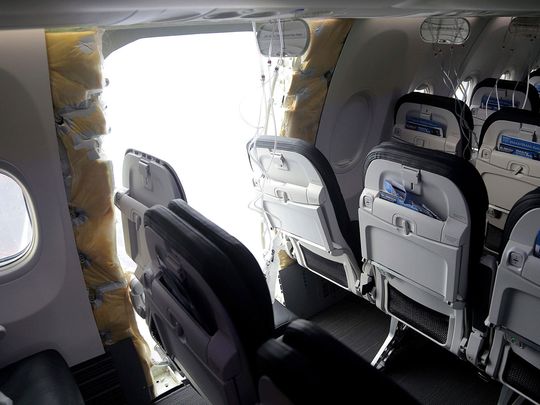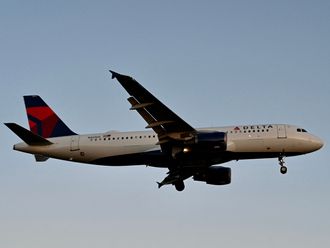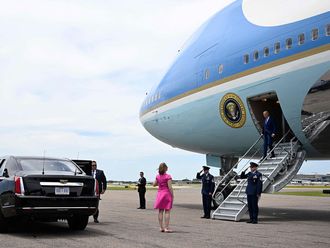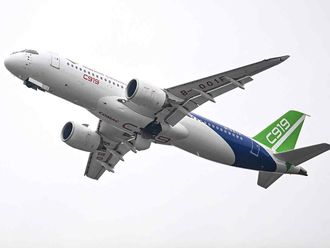
Boeing Co. cautioned that regulatory scrutiny and slower output of its 737 Max jetliner following a January mid-air accident will take a toll on its cash flow projections, a measure closely watched by investors.
Cash outflow will reach $4 billion to $4.5 billion in the first quarter, Boeing Chief Financial Officer Brian West told a Bank of America conference in London on Wednesday. A plan to reach a $10 billion cash flow target by 2025-26 will also take longer, though he didn't give specifics. For the year, free cash flow will be in the single digit billions of dollars, West said.
"We're not at the moment where we can manage the near term for these financial outcomes because of the work at hand around stability," West said. "Our expectation is that we'll get more predictable and better positioned, but it will take time."
read more
- Dubai aviation firm DAE secures $420 million unsecured term loan over 5 years
- New First Class cabins to be introduced to Qatar Airways fleet, says new CEO
- Saudi Wealth Fund said to be in talks to buy national airline Saudia
- RAK Bank, Air Arabia extended partnership co-brand credit card to include free annual return flight ticket
West said margins at the commercial aircraft business will be negative to the tune of about 20% in the first quarter as the company pays out compensation for a near-catastrophic fuselage failure on a Boeing 737 Max 9 aircraft on Jan. 5 and absorbs the broader hit from the episode. Those include reducing production rates, which will be lower in the first half and then higher again in the latter part of the year, he said.
Boeing shares fell 2.4% in US premarket trading.
Investor expectations have dimmed for what was supposed to be a crucial year in the planemaker's recovery from the pandemic and a global grounding of the 737 Max after two plane crashes. Even so, Boeing's not strapped for cash, West said. The planemaker has sufficient reserves to pay for a possible acquisition of Spirit AeroSystems Holdings Inc. in cash and debt rather than issuing equity, West said.
If it's consummated, the deal would reverse Boeing's largest outsourcing move after nearly 20 years, allowing the aerospace giant to tighten oversight of its most important parts provider. West said the company probably got "a little too far of itself" on the topic of outsourcing assets.
"We believe that reintegrating these two companies is best for safety and for quality for the aerospace industry," West said. "It's about running the business not as a business but as a factory, and stay focused."
Analysts predict Boeing will burn through $1.34 billion during this quarter, according to data compiled by Bloomberg, as it works through another crisis engulfing its main cash cow. That's a setback from a year ago, when Boeing generated $2.95 billion in cash.
US regulators are pressuring Boeing to tighten its control over the workmanship in its factories and at suppliers after a fuselage panel blew out of a new Alaska Airlines 737 Max on Jan. 5. Federal Aviation Administration Administrator Michael Whitaker walked away from a recent visit to the manufacturer's Seattle-area industrial base concerned that the emphasis on boosting production rates had eroded Boeing's safety culture.
"Their priorities have been on production, and not on safety and quality," Whitaker told NBC News in a Tuesday broadcast.











